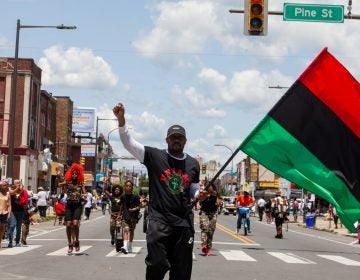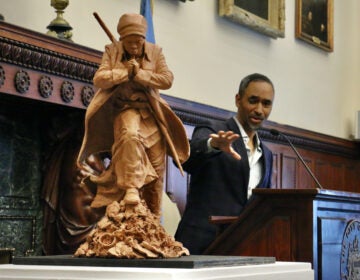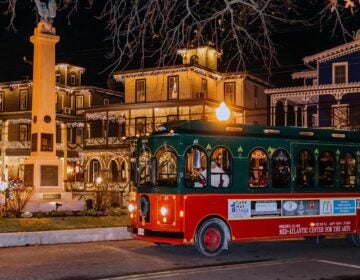New Harriet Tubman Museum opens in Cape May on Juneteenth
The museum tells the story not only of Tubman’s ties to the Jersey Shore resort town, but also its once-vibrant African American community.
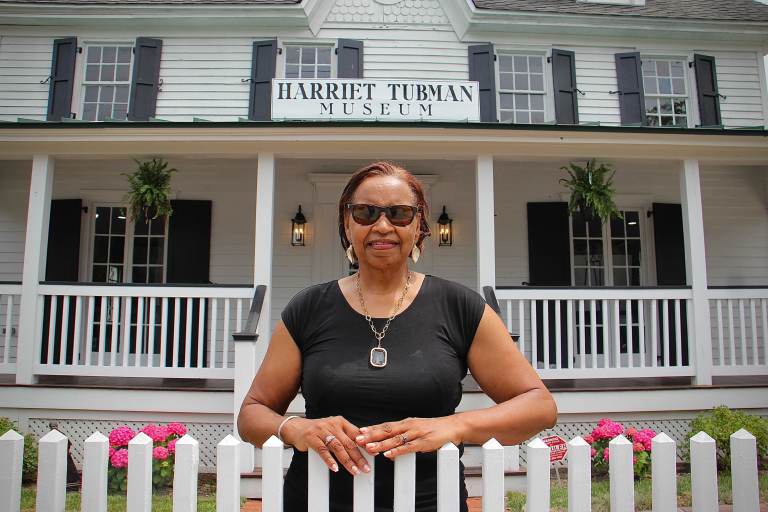
Lynda Anderson-Towns, president of the Trustees of the Harriet Tubman Museum, stands outside the museum on Lafayette Street in Cape May. (Emma Lee/WHYY)
A Juneteenth celebration in Cape May doubled as the grand opening of the new Harriet Tubman Museum in this Jersey Shore resort town.
About 200 people gathered Saturday in Rotary Park for the city’s first significant Juneteenth event, organized by the museum. African drumming and speeches by local leaders drew some for their first taste of Juneteenth as it became a national holiday.
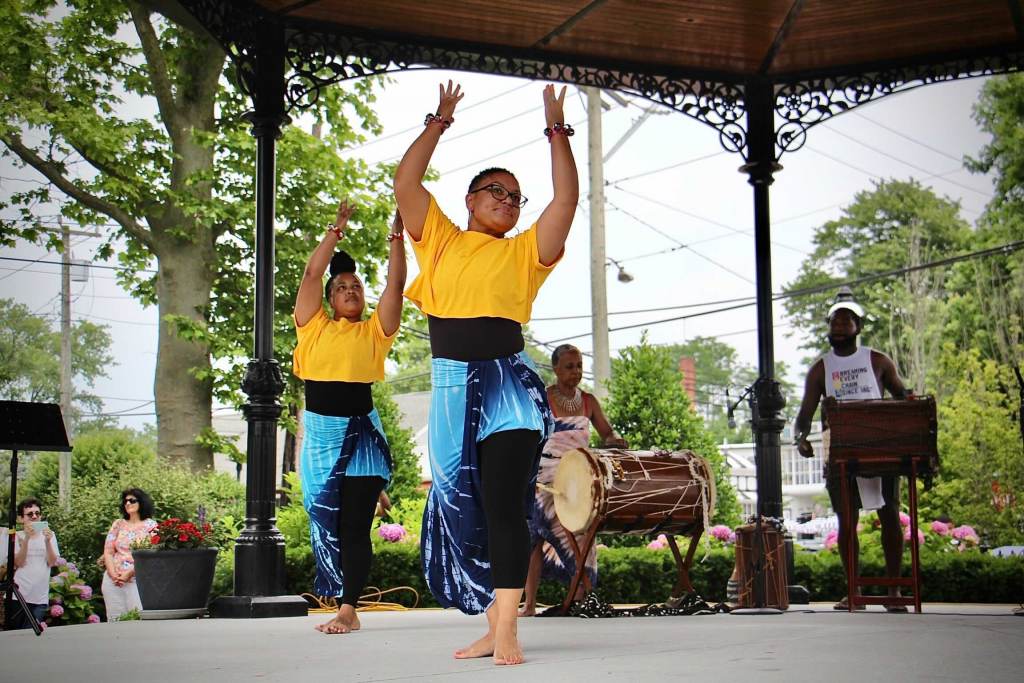
“I thought the event was very inspirational,” said Shirlene Darby of nearby Whitesboro, who had never celebrated Juneteenth before. “Just knowing that we’re going to be getting together every Juneteenth as a national holiday, I just think it’s something good. It’s a long time coming.”
Others came specifically for the long-awaited opening of the Harriet Tubman Museum, which had been delayed for a year because of the coronavirus pandemic.
“I know a lot about Harriet Tubman, that history. Right. That’s what made me come here,” said Gerald Brown, who came down from Pleasantville. “They talk about the Underground Railroad, but after that, what she did in the military, you know, she was a nurse. There’s a lot of different things she’s done.”
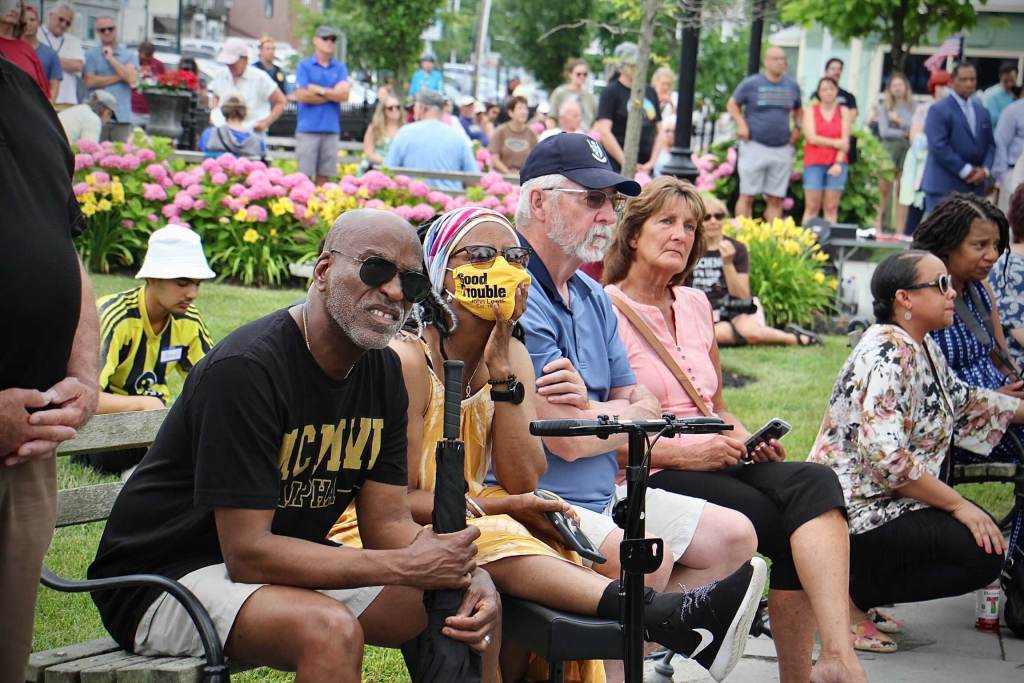
Tubman’s time in Cape May was short. It is known she spent a summer there — maybe two summers — working in the resort hotels to raise money to fund her work with the Underground Railroad. She later came back through Cape May to shepherd nine escaped former slaves up to Canada.
The museum, located in a restored 19th-century parson’s house, tells Tubman’s story — and also that of the once-vibrant African American community in Cape May.

One wall is filled floor-to-ceiling with a list of all the Black-owned businesses in Cape May since the 1930s. The opposite wall features a timeline of Black activity in the town, from the founding of the first free Black community in the 1820s, to the first Black resort hotel — the Banneker House in 1845 — up to today.
Museum board president Lynda Anderson-Towns said Cape May’s Black community is not nearly as large now as it was 50 or 100 years ago.
“The African American community has almost disappeared,” she said. “Many are not here anymore, and the world needs to know that story. We want to make sure it doesn’t disappear.”
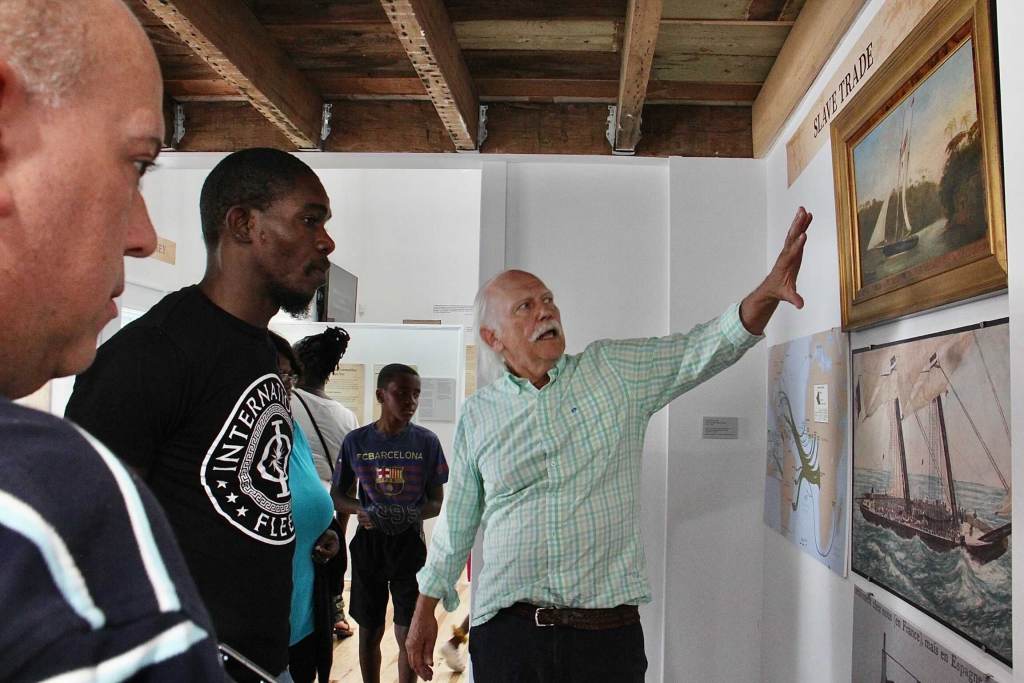
Anderson-Towns sees the Harriet Tubman museum as the first step toward building a Black historic district in Cape May by preserving the surrounding structures that tell the story of the Black community.
”Our goal is to not just have the Harriet Tubman Museum to tour, but also the Stephen Smith house to tour, to talk about him as one of the wealthiest African Americans in 1800,” she said. “The historic Franklin Street School, which will be turned into a library, and then also the historic AME [church]. We want that full corner to be eventually our Freedom Corner.”
Elaine Moore-Wright came to the museum Saturday from Williamstown with her mother, Betty Eugenia Dozier Moore. Longtime visitors to Cape May, they say the history is there, if you look.
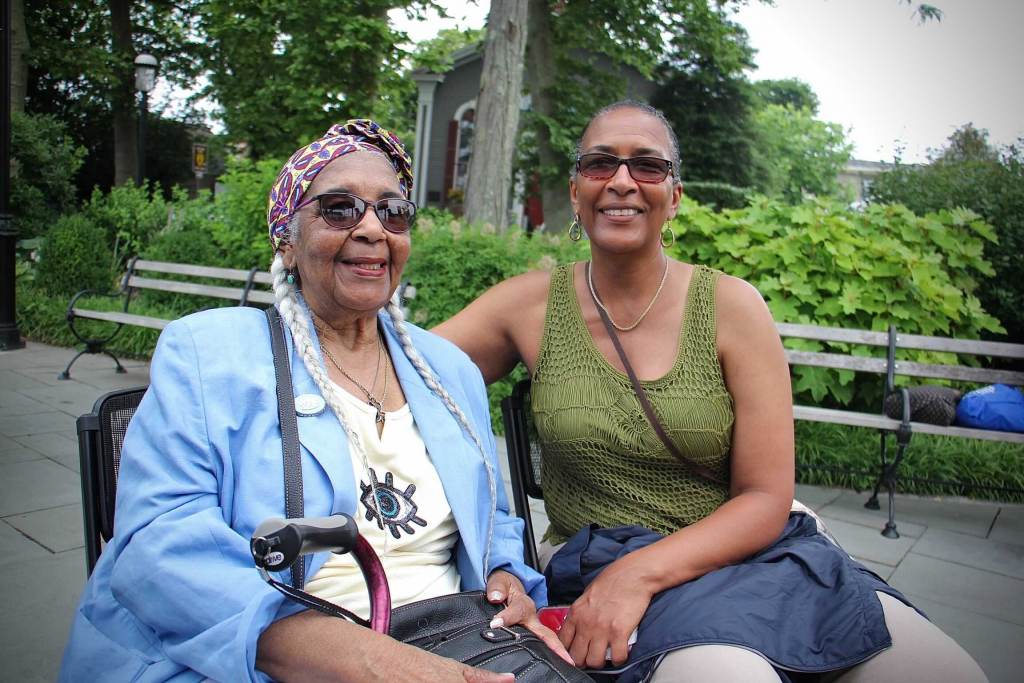
“There’s always a piece of African American history,” said Moore-Wright. “But then, there are certain places where it’s just all about African American history.”
“It’s been that way for a long time in Cape May, because they lived here ever since there was a Cape May,” said Dozier Moore. “I used to come down here when I was a kid, and I’m 84 years old, so Cape May’s been having people of color here for a long time.”

Get daily updates from WHYY News!
WHYY is your source for fact-based, in-depth journalism and information. As a nonprofit organization, we rely on financial support from readers like you. Please give today.




